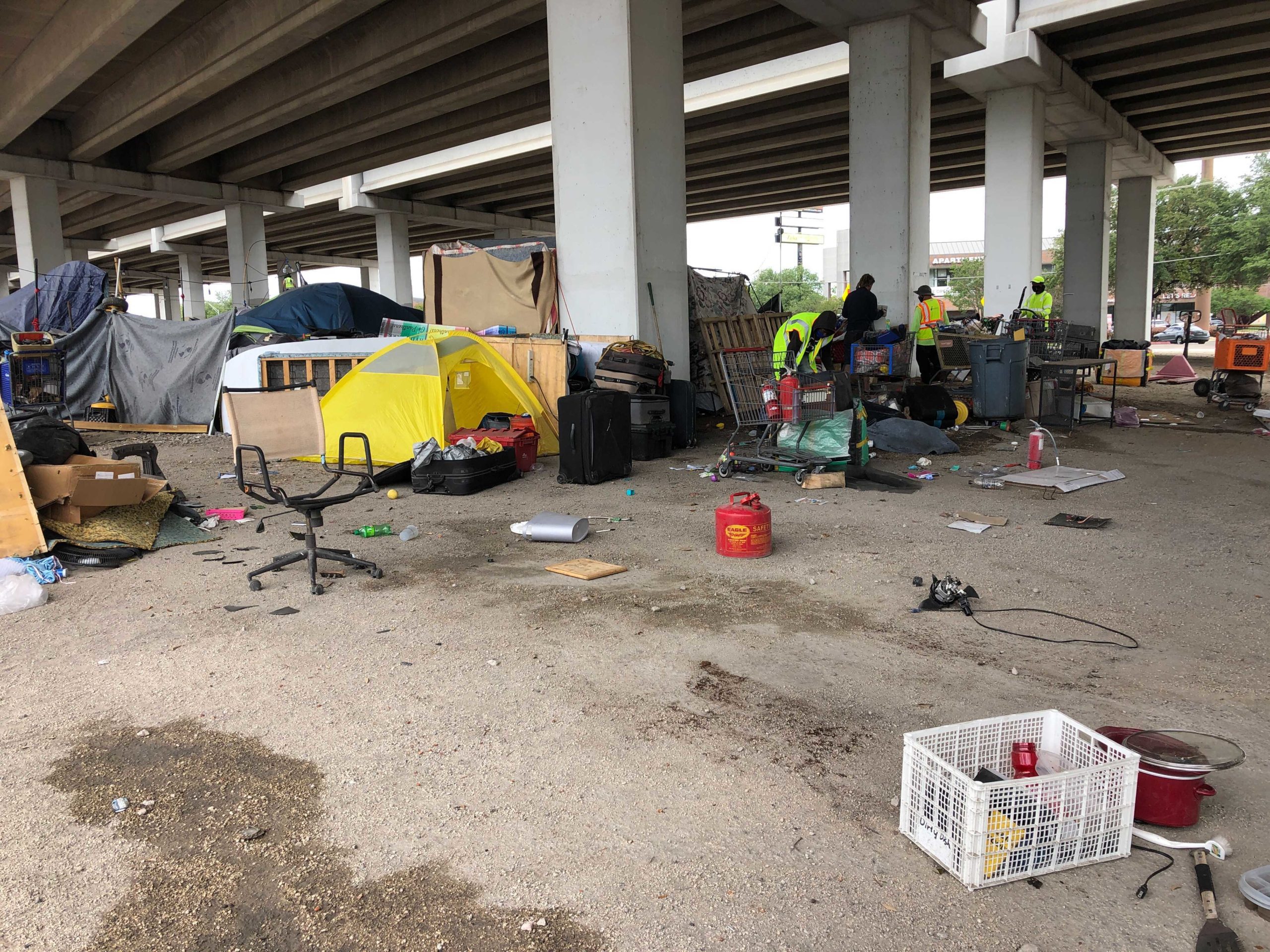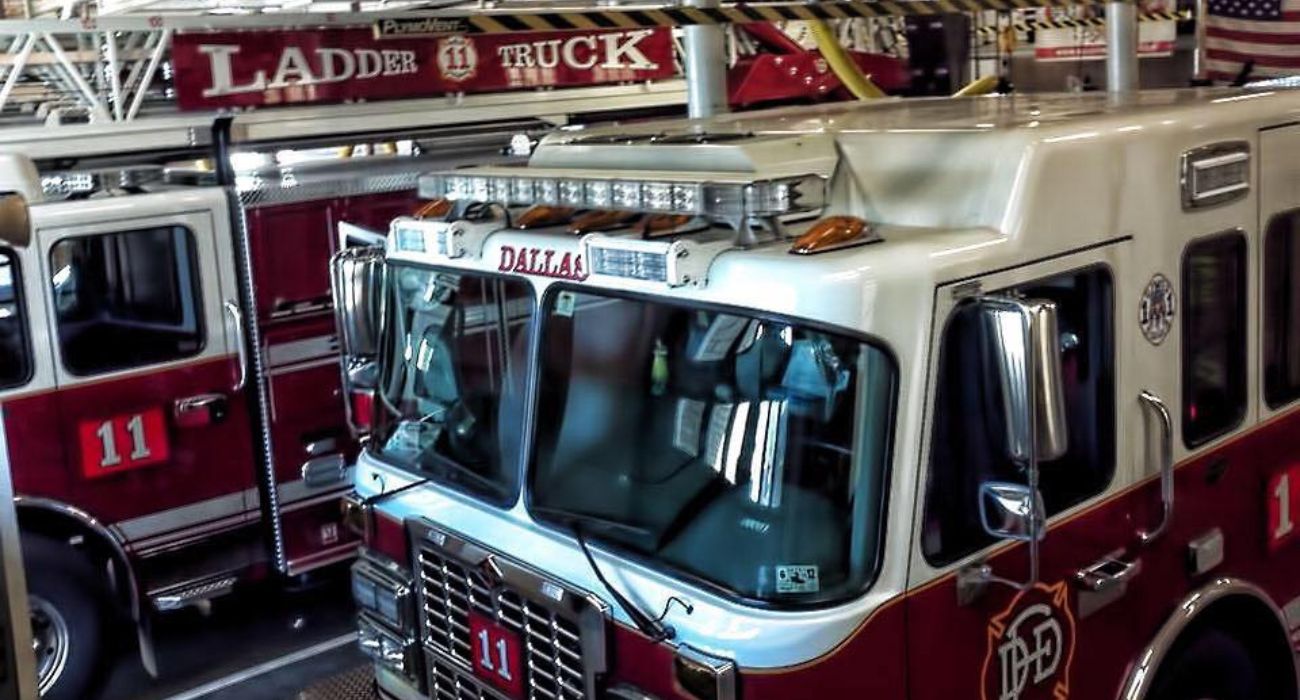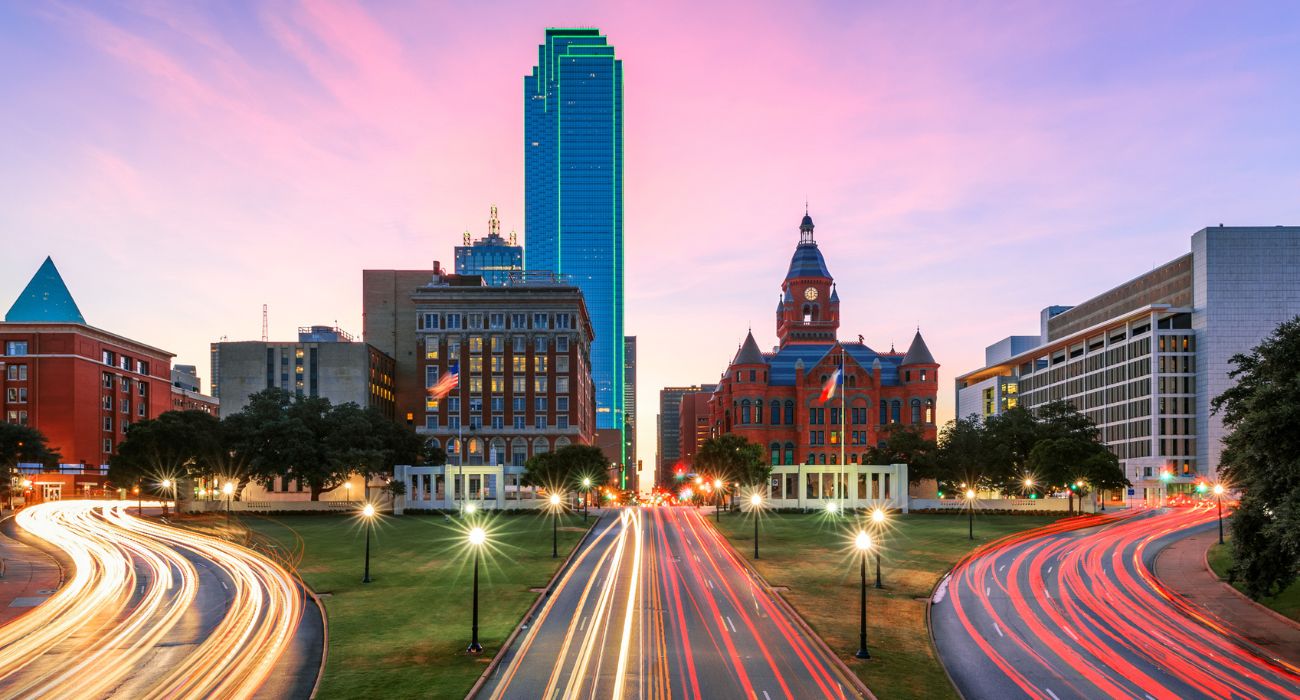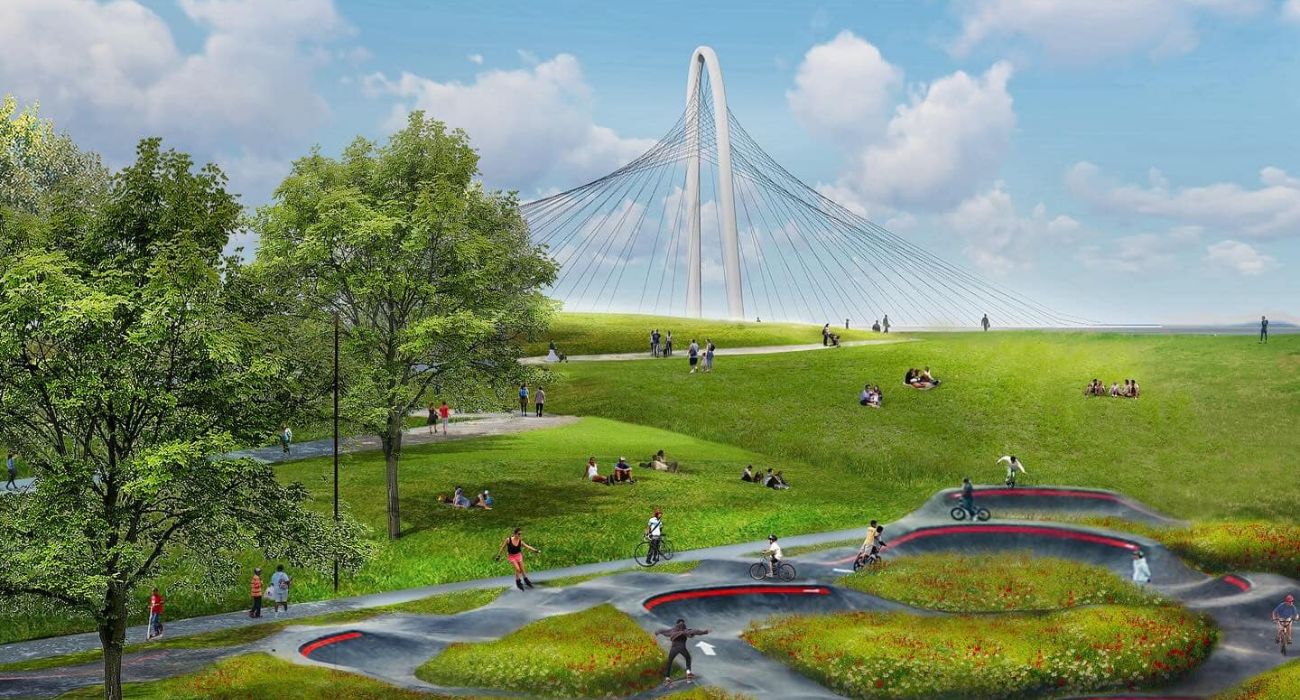A local group known as Keep Dallas Safe (KDS) alleges that the City of Dallas is violating the law by allowing homeless encampments, a matter The Dallas Express previously reported on in January. Still, the group claims the issue is growing and yet to be addressed.
The law allegedly being violated is House Bill 1925, which was signed into effect in May 2021. The law prohibits a political subdivision from designating an area for homeless camping unless subdivision officials submit and approve a plan. The law explicitly bans tents, tarps, and sleeping bags from being used on public property.
Under the law, a plan for a homeless camp would not be approved unless it is proven that it will provide sufficient resources and shelter to the inhabitants.
KDS has continued sending letters to Attorney General Ken Paxton and Dallas officials since last month about the matter but have received no responses. Dallas City Manager T.C. Broadnax, the Dallas Police Department, and the Dallas Office of Homeless Solutions are among other recipients of letters from KDS about the issue.
“Despite the clearly worded law, the City of Dallas has knowingly allowed these camps to remain in violation of the law,” the letter to AG Paxton reads.
The group has included time-stamped photos of the multiple camps with the letters. They are located in various areas across Dallas.
“These camps have remained despite the city having knowledge of their existence which illustrates the city’s refusal to enforce the law,” KDS says in the letter to Broadnax.
Last month president of KDS, Daniel Taylor, spoke with The Dallas Express and said the homeless encampments threaten the safety of the inhabitants and nearby residents. According to Taylor, members of the homeless population are at greater risk of becoming victims of crime than the rest of the population. Health issues can also be prominent in homeless encampments.
OurCalling, a Dallas-based homeless services organization, has previously addressed the topic on its site, under the heading, “Why do we continue to play this silly cat and mouse game to hunt and close homeless encampments?”
“[We] fully understand the chaos, crime and criminal element that existed at Tent City,” the page reads. “However these same crimes exist in many different neighborhoods throughout Dallas. (Have you seen the citywide murder and crime rates?) Bulldozing crime-ridden neighborhoods is not a sustainable solution. Finding and prosecuting criminals needs to be the priority. If a police officer can stop [us] and search [our] car[s] with probable cause, why can’t they search tents for drugs and stop the dealers and perpetrators from inflicting such pain on the helpless[?]”
The page further comments: “Most people camping outside are technically trespassing because [they] don’t have a legal option. Many keep their camps clean, aren’t disturbing the public and might be good neighbors. Many can’t get a job due to mental health issues, disability, criminal background or lack of life skills to maintain employment. What does it hurt the city for them to camp peacefully? Yes, there are some that aren’t peaceful and we should police those areas. But the majority are peaceful. The majority want a place to lay their heads and sleep with dignity.”
Recently, Dallas has announced the purchase of a hotel near RedBird mall with plans of converting it into housing for homeless individuals. It remains to be seen if that will substantially affect the homelessness issue in Dallas.
According to the Metro Dallas Homeless Alliance data, approximately 4,570 individuals sought shelter at homeless facilities in Dallas and Collin County last year, with 90% of the individuals being in Dallas County. The data found that the city spends an estimated $1 million annually moving homeless individuals out of encampments.






